Saturday 2nd April 2022 marks 10 years since the first episode of TableTop aired. The hobby has changed dramatically since – the numbers and diversity of players and games increasing annually, creating a golden age for tabletop gaming.
It’s thanks, in a large part, to TableTop.
To mark this auspicious anniversary Meeple Mountain is saluting TableTop, celebrating what made the show so important and exploring why its influence and impact are still felt today.
Title Animation
TableTop was a web series created by Felicia Day and Wil Wheaton and published on Geek & Sundry’s YouTube channel between 2012 and 2017. TableTop was game changing – both a terrible pun and an accurate assessment of its legacy.

TableTop opened with Wheaton, Grant Imahara, Jenna Busch and Sean Plott battling over Small World
And finished on 7th June 2017 as Wheaton, Patrick Rothfuss, Stef Woodburn and Jessica Merizan fought to defeat Azathoth “The Daemon Sultan” in Eldritch Horror.
In the intervening 5 years and four seasons, 166 unique guests played 79 games over 81 main episodes.
On average, each of those episodes has been viewed over 1.5 million times and in total TableTop has racked up almost 123 million views (and that’s not including extended editions, behind the scenes, gag reels and other related content).
Introducing the Guests
Board games and role-playing games are as much about the people playing as they are about rules and mechanics. Happily, TableTop’s line-up reflected this; a wonderfully eclectic collection of interesting guests.
Actors, writers, comedians, musicians, artists, producers, game designers, and more all took part. There were friends new and old, double acts, romantic partners, siblings, children and a whole bevy of Big Bang Theory alumni. Where else could you watch the drummer from The Presidents of the United States of America (Jason Finn), a NASA Curiosity engineer (Bobak Ferdowsi) and the Science Fiction and Fantasy Writers of America president (John Scalzi) team up to escape Forbidden Island?
For hobbyists there was pleasure to be had in watching Steve Jackson win at Munchkin, Chris Pramas run Dragon Age, Ryan Macklin GM Fate Core, and Melissa DeTora beat Wheaton at the duelling card game Star Realms.
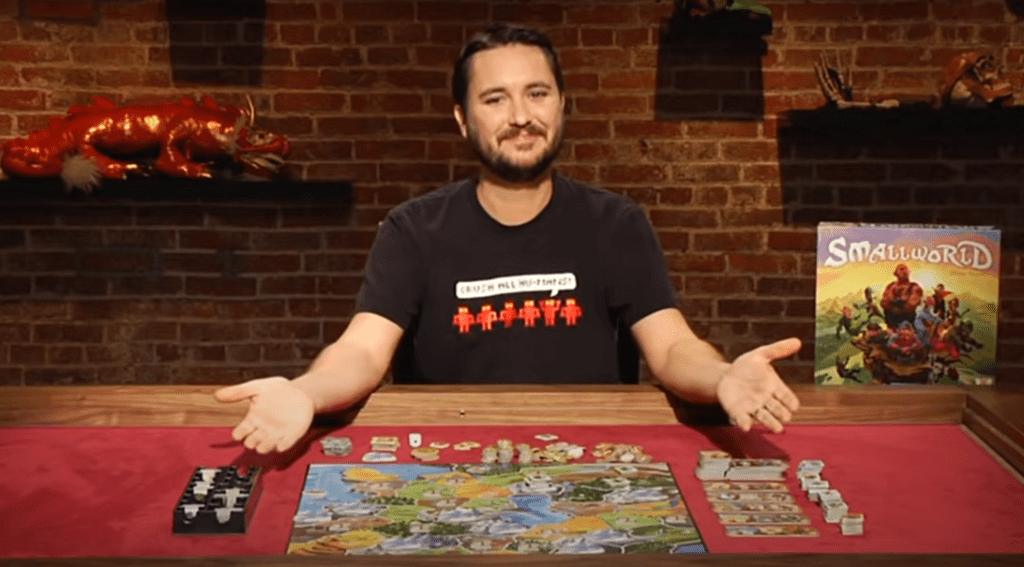
The guests reveal the hobby at its best. Their laughter and friendly competition invited the viewer in, showcasing what tabletop games bring to millions and demonstrating that they are for everyone. Seeing Superman (Brandon Routh) lose at Fortune and Glory normalised the tabletop hobby. How can you feel embarrassed of your ‘nerdy’ pastime when former Minnesota Vikings’ punter Chris Kluwe can not only play Champions of Midgard, but also win it?
When TableTop premiered in 2012, the hobby had a diversity problem. Representation in the tabletop hobby matters, and from its first episode TableTop promoted a variety of players far beyond the predominant white male stereotype. Across the series 46% of guests were female or non-binary, and 86% of episodes featured a mixed gender or all female line-up. In fact, women and non-binary individuals made up half or more of the people on screen in 47% of episodes.
These issues were clearly on the minds of creators, as Wheaton noted about Monarch: “the only game I have ever played where all the characters are women, which I think is pretty awesome in a male-dominated hobby”. Similarly, where season three’s Cards Against Humanity could have been a testosterone-fuelled frat-boy-athon, the episode’s guests were all female.
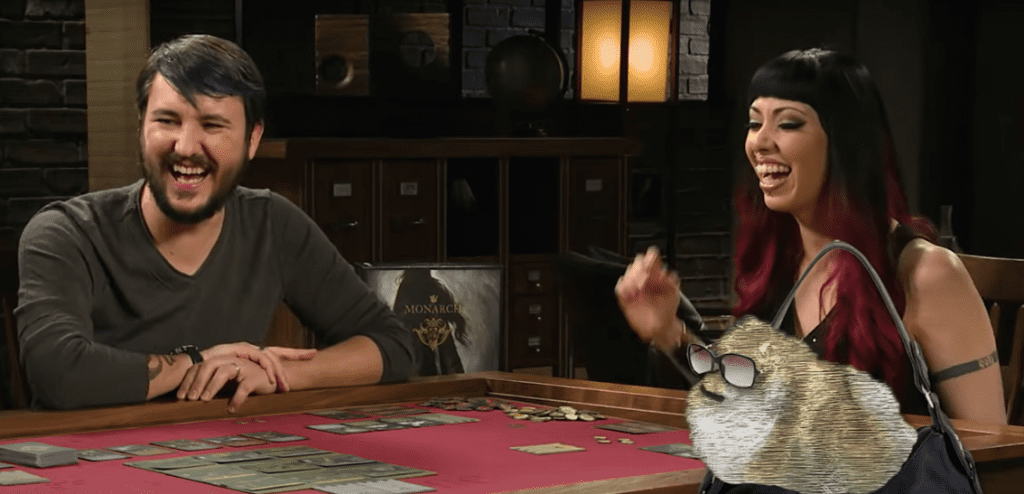
Unfortunately, ethnicity fared less well, with only 16% of guests of a black, Asian or minority ethnic (BAME) background, and only 38% of episodes featuring at least one or more BAME guest. Even this level of representation, however, was huge when the series started (and, sadly, still isn’t terrible today).
TableTop was ground-breaking, light-years ahead of anything produced at the time, demonstrating just how rich and diverse this hobby can be.
Playing the Game
If the guests represented the wider community, then the games themselves showed just what the hobby has to offer. Almost every type of game is represented, from the simple Zombie Dice to the more involved Fury of Dracula, and from party games like Codenames to role-playing games like Fiasco. The most popular episodes tended to involve thematic games, with social deduction game The Resistance getting 3.8 million views, and Munchkin, Small World and Dead of Winter joining it in the over 3 million group.
The criteria for a game to appear on TableTop were strict, including that the games be in print, take under 90 minutes to play and be teachable in around 5 minutes. As Wheaton acknowledged, some incredible games never appeared on the show because of the practicalities of making an engaging episode around them.
The team asked fans and publishers for suggestions, each season reducing around 200 games down to 20. The games that survived the selection process were some of the very best around, joyous cardboard ambassadors for the hobby.
The result?
Viewers wanted to play them for themselves, and game sales reflected that. A spike in sales following each episode was dubbed the ‘The Wheaton Effect’. Publishers noticed. Days of Wonder reported five times the sales of Small World in the month following TableTop’s first episode. Increases in sales weren’t just short-term either. In the UK annual industry growth in the years following TableTop’s debut has been estimated at between 20% and 35%; Asmodee’s worth rose by £100 million between 2014 and 2018.
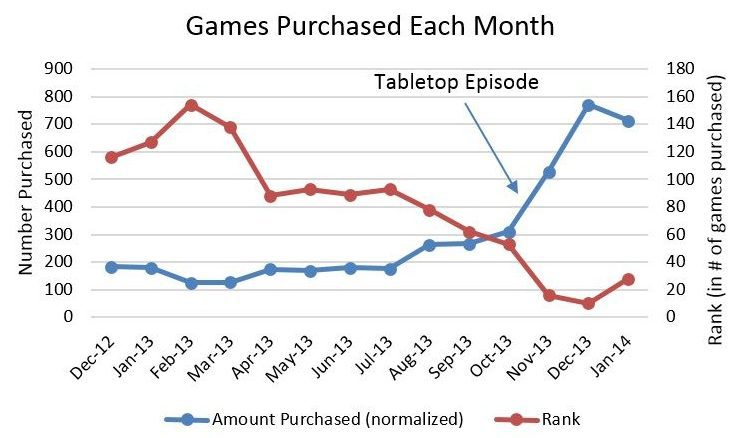
TableTop encouraged thousands to get into games, exciting newcomers and hobby veterans alike. As Days of Wonder Vice-President Mark Kaufman said at the time, TableTop “reinvigorated not only new people but it also got the core people going… And that’s what brings new people into the hobby.”
Wheaton recollects visiting a bookstore and being approached by a young man who’d been introduced to board games by TableTop. The man asked Wheaton for help choosing a game from the store’s board game section, itself only there because of TableTop.
It’s no coincidence that the number of registered users on BoardGameGeek doubled in the 3 years following TableTop’s launch, from under half a million in early 2012 to 1 million users at the start of 2015. A month ago the site hit 3 million.
TableTop isn’t solely responsible for these player numbers and sales increases but it played a significant part in them, leading to more and better games, communities and events.
Owlbear!
International TableTop Day launched a year after the first episode aired, on the 30th March 2013. It was a day intended to unite the world “in a common purpose of spending time together and having fun”. Livestreamed gaming was hosted on the Geek & Sundry YouTube channel, and over 3,000 events were held in 64 countries on every continent (even researchers in Antarctica joined in).
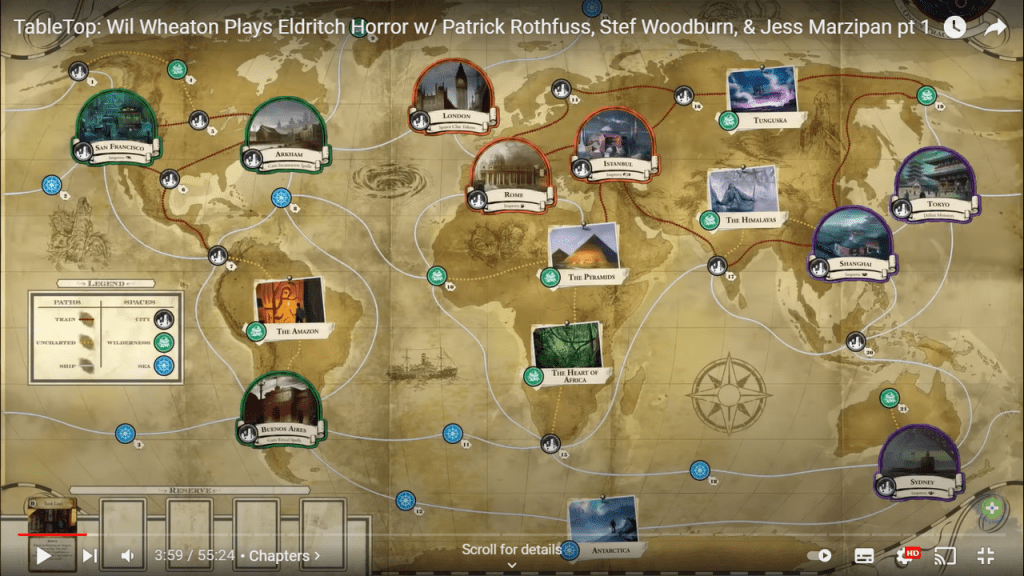
Momentum grew annually but with the pandemic and the decline of Geek & Sundry it’s no longer centrally organised. Despite this, many gamers still celebrate on the first Saturday of every June – in 2022 look out for events happening on the 4th June.
International TableTop Day is another example of the wider impact of TableTop stretching far beyond the episodes themselves at a community and personal level. One fan used the day to briefly make things a little easier for their family: “I hadn’t seen [Mum] laugh so much or so hard since before Dad died. It helped bring everyone together for something joyous… thank you, International Tabletop Day, for helping make our first Easter without Dad that little bit easier.”
On the Fly Interviews
TableTop’s production levels set a new standard for what a show about board and role-playing games can look like, something that was intentional from the start. “This show is a standout for a reason,” Day said during the funding campaign for season three, “We pay professional people to make it. It’s polished and stands next to TV show quality because we wanted to make something long-lasting, [that would] impact in a big way.”
Day and Wheaton funded the first two seasons through the YouTube Original Channel Initiative, season three via crowdfunding and finally season four was funded by the Geek & Sundry parent company Legendary Entertainment. Each ~30 minute episode cost £30,000-£40,000 and the team were determined to get as much from that budget as possible. As Wheaton said “We put everything we have into TableTop, because we love it, and we push our budget to its maximum limit so the show that we put out on YouTube can stand next to anything you see on Broadcast or Cable”.
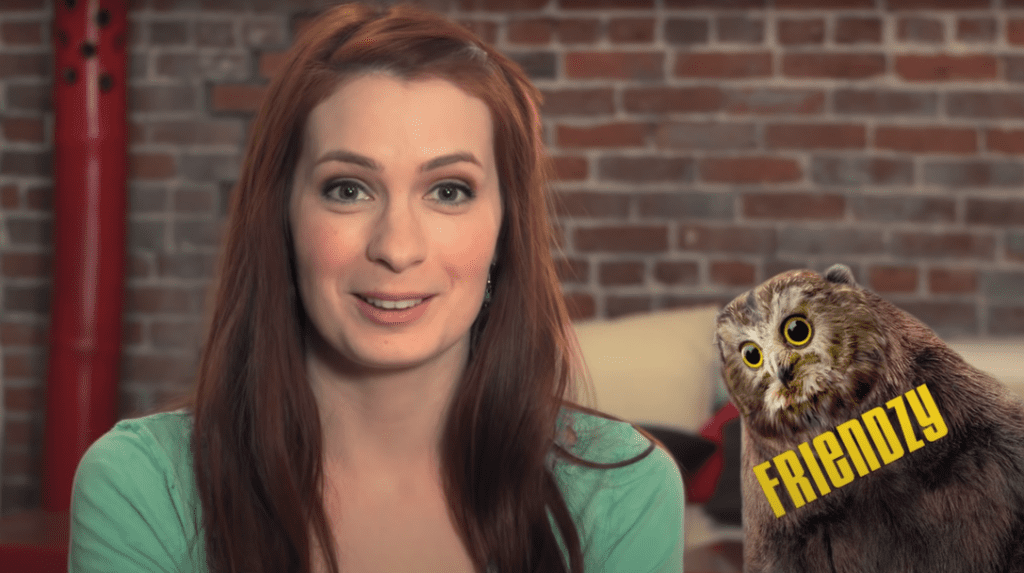
A lot of talented people created and edited each episode. Particular credit should go to series director, Jennifer Arnold, who set the tone of TableTop from the very first episode. Arnold directed 58 episodes and has since gone on to direct episodes of American Horror Story, Brooklyn Nine-Nine, and more. With a rigorous shooting schedule and multiple cameras, interviews and graphics it wasn’t an easy process. Just look at this episode timeline from editor Stephen Grubel for the Star Wars: X-Wing episode:
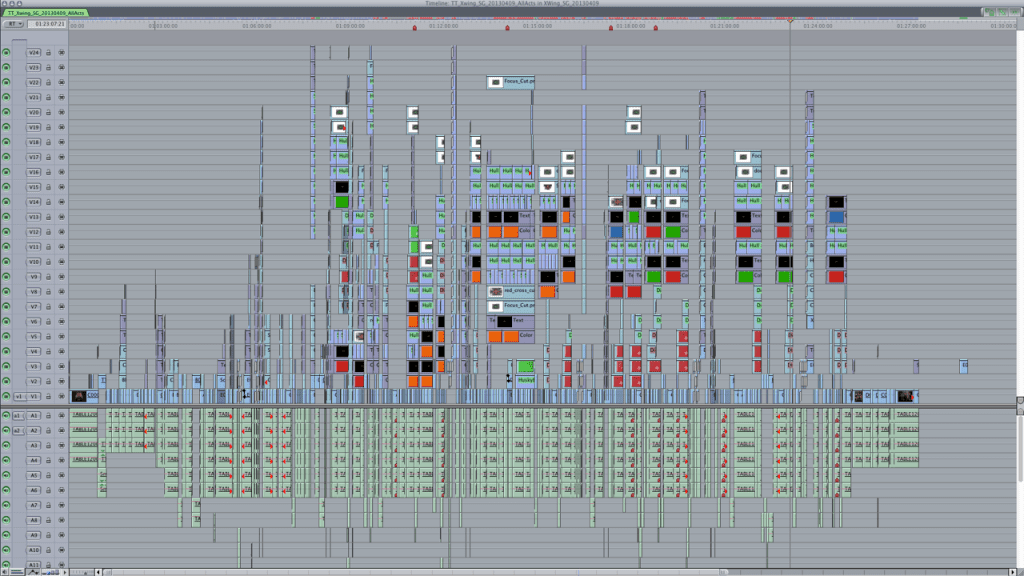
The result of the team’s hard work is the lasting legacy that Day and Wheaton were aiming for. TableTop was and remains the pinnacle of video entertainment in the tabletop hobby, a showcase for this wonderful pastime.
The Golden Freeze Frame
The ultimate winner of TableTop was undoubtedly the hobby itself, but let’s take a moment to celebrate the show’s host and co-creator. Wil Wheaton was as important to the success and wider impact of the show as the entertaining guests, fantastic games and high levels of production.
Wheaton comes across as welcoming, warm, witty, knowledgeable, passionate and entertaining. He invites the viewer into each episode, making you feel part of the gang and the game. It’s impossible not to get caught up in his infectious enthusiasm for tabletop games of all varieties.
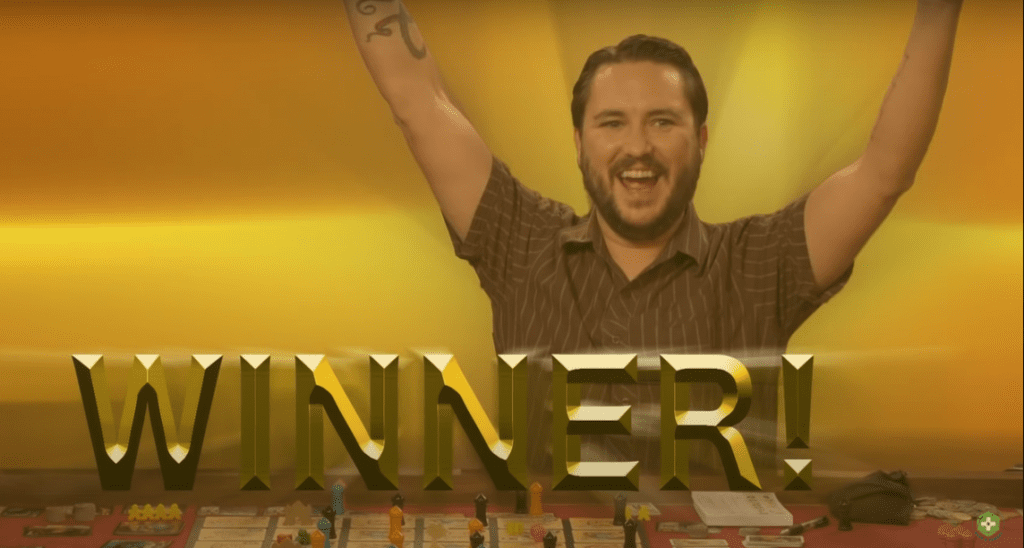
In 2013 TableTop won the Diana Jones Award for Excellence in Gaming for bringing “a new energy and humour to the board-game field”. As part of the announcement the committee specifically recognised “the inestimable Wil Wheaton as the critical element in TableTop. Wil is not only executive producer, host, and co-creator, but this show would not be what it is without his genuine enthusiasm for tabletop games.”
How lucky we are to have had Wheaton as our ambassador to the world. As the committee said: “The games hobby could not want a better public face than Wil Wheaton.”
Loser’s Lounge
Not everything went smoothly. There were issues with how parent company Legendary Entertainment handled the release of season four (the problems seemingly starting once Legendary was acquired by conglomerate Wanda Group in 2016), initially putting the season behind a paid subscription service before eventually adding it to YouTube.
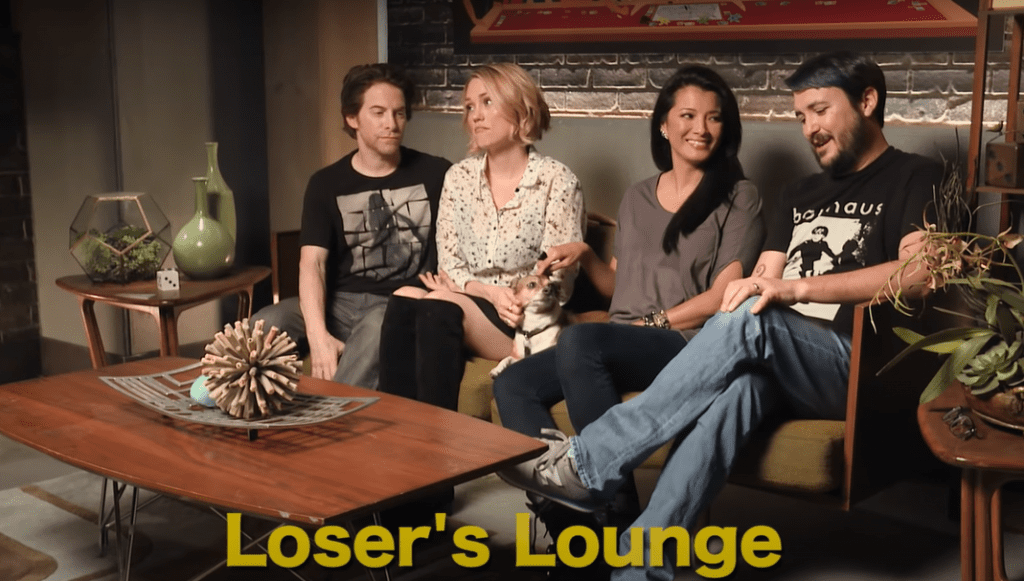
Day and Wheaton also knew there might be moments where game rules weren’t followed, and had already decided that they weren’t making the show for the people for whom any rules slip was unforgivable. In season three a few more errors slipped in than usual however, prompting an understandably disappointed and embarrassed Wheaton to discuss the issue and later reflect on his handling of the situation.
Yet rules errors never impacted on the quality of the show or the obvious enjoyment of the guests. Rules can be tricky to remember, we all get them wrong occasionally. With its errors, TableTop mimicked our own experiences. It demonstrated that the joy of tabletop games is in our interactions with other players – so long as everyone is happy, a few rule missteps are largely irrelevant.
TableTop Trophy of Awesome
With its last moments muddied by the issues over rules and the influence of Legendary/Wanda, it’s easy to forget how revolutionary TableTop was. The series set crowdfunding records with season three, raising over $1.4 million to produce the series as well as spin-off RPG series Titansgrave: The Ashes of Valkana. In addition to the Diana Jones Award, TableTop won a gold ENnie for the Dragon Age episode, and the Best Game Related Publication at the 40th annual Origins Awards.
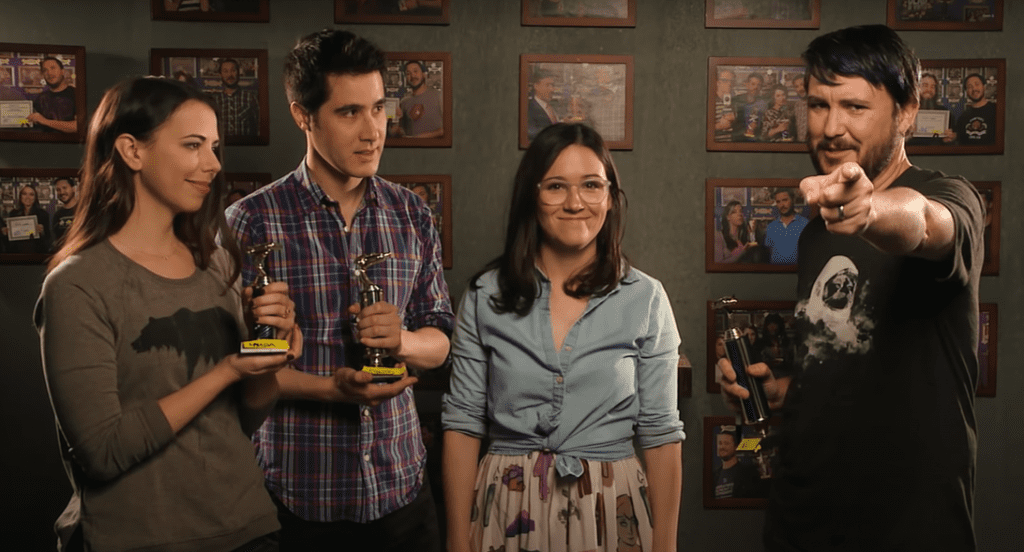
The show affected the hobby at every level, from the industry down to the personal. Families started games nights, marriages were saved, and parents of children with special needs found the show helped them – one mother spoke of how TableTop allowed her to communicate with her autistic son for the first time in his life.
“The impact TableTop has had on our industry cannot be overstated,” stated the Diana Jones Award committee, “there simply is no greater advocate nor ambassador for gaming.” TableTop showed just what the hobby can be at its very best – an intelligent, vibrant, diverse community of people having a great time playing amazing games.
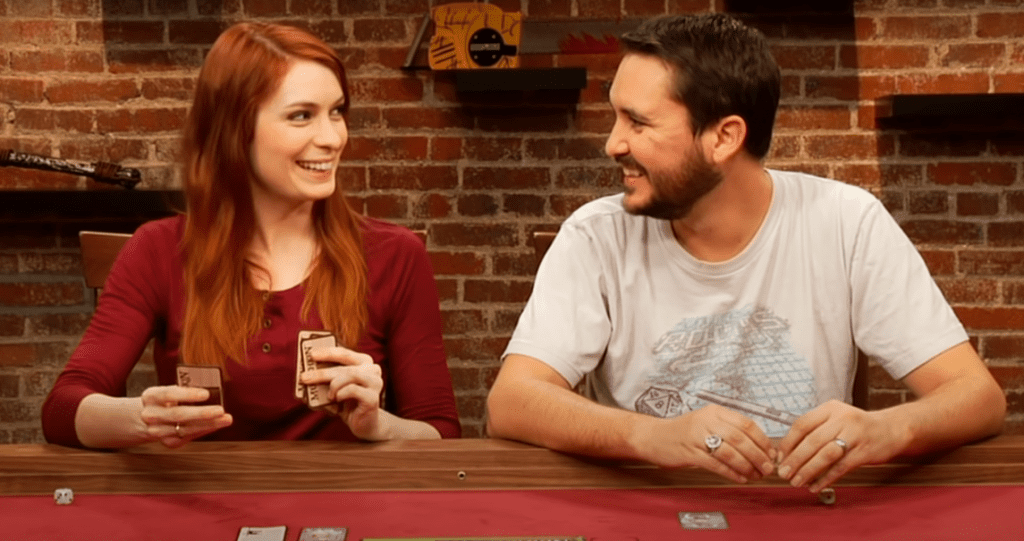
Thousands of the people playing tabletop games today are only doing so because of TableTop. There are game designers, publishers, artists and many others whose careers are built on the surge in popularity that resulted from TableTop. Hundreds of content creators only write, record, shoot and film because they caught the bug from TableTop.
I wouldn’t be writing about board games without TableTop, Meeple Mountain itself wouldn’t exist without the series. “TableTop is what really got me into the hobby,” says Andy Matthews, founder of Meeple Mountain, “and International TableTop Day is what inspired me to start Nashville Tabletop Day”.
Here’s to TableTop. Here’s to Felicia Day, to Wil Wheaton and to the ripples their show created that have shaped the tabletop hobby into the amazing place it is today.
Thanks a lot for reading and until next time: Play More Games!
*All data presented in this article was collected between 21st February and 6th March 2022. Gender and ethnicity data was collected using the episode guest lists available on Wikipedia, combined with extensive web searching. Gender data was collected using pronouns from social media profiles, Wikipedia pages, etc. Ethnicity data was obtained from online profiles, or if that wasn’t forthcoming by making an informed guess with as much sensitivity as possible based on guest name and appearance. Whilst not ideal, this was felt to be an appropriate method in this instance since perceived ethnicity is almost as integral as true ethnicity for visibly demonstrating diversity. As a result of the methodology, the author cannot 100% say that all 166 guests had their ethnicity accurately assigned and deepest apologies are offered for any inaccuracies. Any errors in assigning ethnicity are likely to have under-represented guests with a BAME background, meaning that TableTop would have done an even better job at promoting diversity in the community than stated in the article.


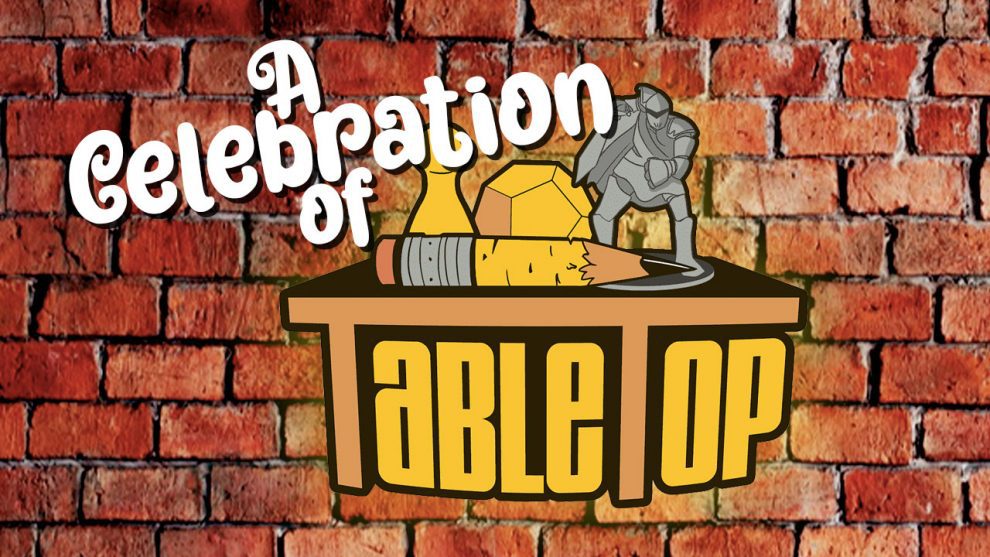
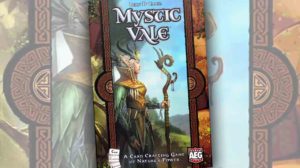

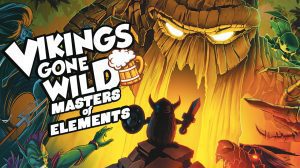





I have TableTop, Mr. Wheaton, and Ms. Day to thank (blame?) for getting me deeper into the hobby. I had the obligatory copy of Settlers of Catan, but after watching TableTop in early 2019 and binging the entire series (without knowing it was defunt), my buy list, and shelf of opportunity, grew exponentially. Wil made board gaming more inviting than Warhammer, more accessible than Magic, all while keeping it genuine. With the show, I felt like I was watching a group of friends have a good time and that was something I wanted to emulate.
That vibe of good friends having a great time is what made the show I think, when the players were clearly friends from before or just gelled on the set the episodes were electric. I also ended up with a wish list and shelf of games purely as a result of the show introducing me to them!
So many gamers that I interact with saying how Tabletop really brought them into the hobby. I wish we had something like it now but it’s hard to get that perfect mix of dorky love, production value and pseudo-celebrity that fueled Tabletop. Maybe someday.
It’s a delicate balance that they managed to get just right with the show. We can hope that something else comes along similarly great someday!
Although I’ve always loved board games, it’s been only when I discovered Table Top that I became very passionate about the hobby. Since my daughter started to appreciate board gaming, we started collecting some classics, and the first one was Muchkin, right after we watched the relevant episode with Steve Jackson himself.
Looking back at my humble collection of games, I can say that 95% of it has been shaped by Table Top episodes, in particular with Eldritch Horror, Catan, and Dead of Winter, the latter being one of my favourite semi-coop games ever, only surpassed by that gargantuan monolith that’s Nemesis.
That’s amazing that you’ve been watching it with your daughter and using it as a way to bond and explore the hobby together!
Wil Wheaton brilliant at making gaming approachable and inspiring so many to interact with family and friends via games. I discovered this show during the peak of COVID, and we all are profoundly grateful. They show helped us find games we might not have found, but also in the most entertaining way demonstrates how to play. The guest feel like our own friends, totally relatable, including the poking fun at each other while competing.
The regular and extended editions are all must watch. Wil’s show TableTop has done for gaming what Harry Potter did to inspire whole groups to read.
#TableTop-Rulez #TableTop-BringItBack!
That’s a great analogy Lin, TableTop did so much to get people inspired by gaming! I’m with you on TableTop helping me to find games – there are plenty that I’d never heard of or had seen but that looked really dull from the box cover or image online, only for the episode to show just what a great game lies underneath the occasionally drab exterior!
#TableTop-BringItBack! – We can but hope!
TableTop is worthy of ongoing celebration and I thank you Andrew🤗 for writing the article that is both profoundly transparent and so reflective of what I am sure so many people feel. While I can’t hold a candle to some of the brilliant comments below, I do want to add this:
Will Wheaton and the show changed so many lives for the better🫶. The show still is bringing people together👥 to not only play games but to bond in ways they hadn’t before. I watch and rewatch the episodes, forward them to friends or Co-workers that I feel would enjoy who in turn likely do the same.
What was created still is paying forward beyond the initial launch of the high quality program, in ways I feel very few shows have. I for one would LOVE ❤️ it if Wil Wheaton would ever consider bringing back a version of TableTop. I believe many others would gladly crowdfund it as well.
In closing I agree with the hashtags posted ( #TableTop-Rulez #TableTop-BringItBack! ) and add… #WilWheaton_We_miss_you
Cheers and spread the love of TableTop
Wil and this Youtube show will only grow in reverence and appreciation as time marches on and we really understand the ripples it helped propel. It was massively influential at the exactly perfect time. It was a lightning in a bottle, which I complained about and whined about at times because of its corny-ness and some of the game selections. But it ended way too soon, and I would do anything to have it back. A relatively new show called “NO ROLLS BARRED” is the only thing that comes close, but it’s not the same.